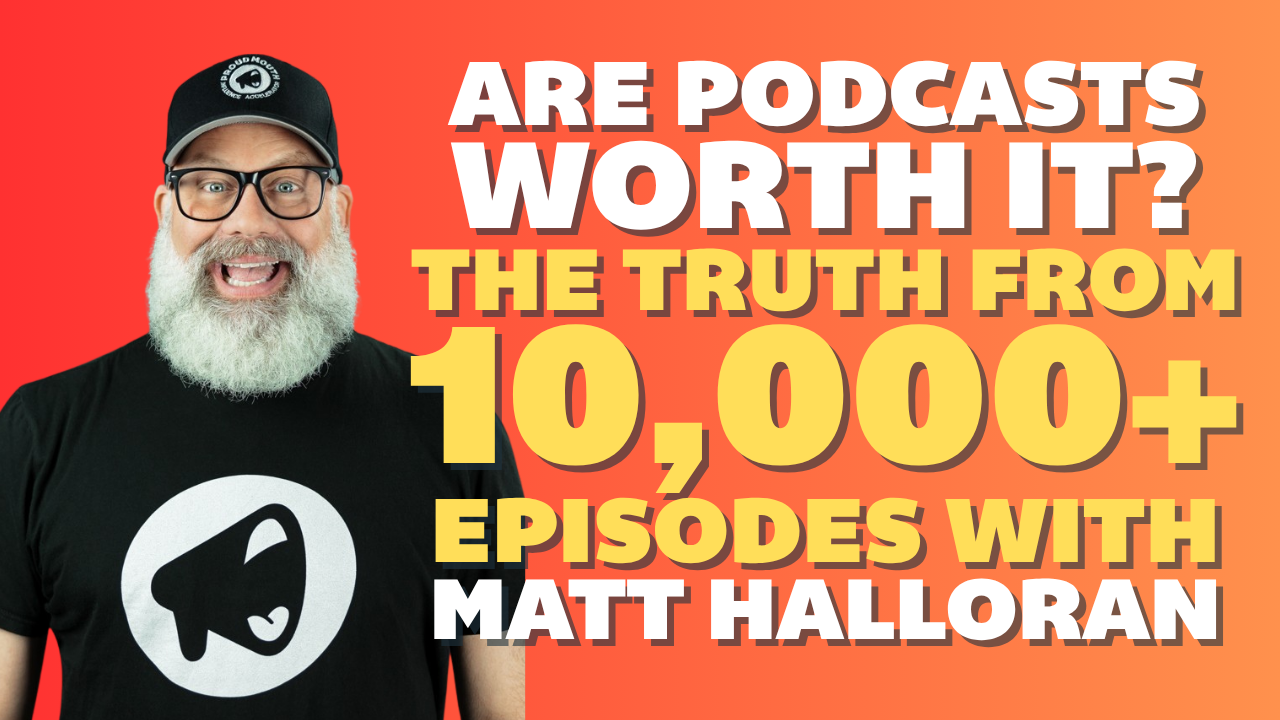Ep. 335: In This Corner . . . Transactions vs. Relationships 🥊🤕
Relationship Marketing or Transactional Marketing
Which is right for you?
Who should listen: Salespeople who want a balanced approach to determining the effectiveness between transactional and relationship marketing and help deciding which may be the best fit for them.
Key idea: While transactional and relationship marketing are distinctly different strategies, they align on many principles so that both can be used effectively.
Action item: The more people you contact, the more opportunities you create, so, for the next 2 weeks, reach out to 30 people every day.
Our guests this week on Stay Paid are Jenn Murtland and Monica Weakley—two highly successful agents with very different approaches to marketing real estate but who, nonetheless, have found common ground while remaining true to the strategies that work best for them.
Jenn and Monica host the Real Estate Fight Club podcast, and it’s where you can hear them duke it out twice a week, giving their audience helpful and effective marketing advice in one episode and dissecting ethical and professional standards violations in the other.
Jenn favors transactional marketing. Her goal is to make money closing sales so that, more or less in her own words, she can buy her own investment properties and then get the heck out.
Monica favors relationship marketing. Her career has always been in sales, and, while she’s tried cold calls and other prospecting tactics, she fell back on building relationships because it’s what she is comfortable doing.
The key to this episode is realizing that both strategies work, but they work in very different ways, and neither is easier than the other or inherently better than the other. And while we certainly have a bias toward relationship marketing—since that’s what we do—you’ll want to listen to this episode to help you determine which strategy may be best for you.
What are transactional marketing and relationship marketing?
When the average person hears the word “sales,” what comes to mind is probably the essence of transactional marketing. One party gives another party money in exchange for goods or services—the focus is to get to the point of sale and then close the sale.
It’s a short-term association with very little to no effort given to building relationships or repeat business.
Successful transactional marketing typically relies on having the right product at the right price. Examples of this strategy include television shopping channels that offer BOGO deals, retail stores that place a sale sign on one product and not on an identical product stacked next to it, and the familiar cold call where a salesperson attempts to pitch a product to you.
Examples of companies that use transactional marketing include QVC and Home Shopping Network (HSN), Publishers Clearing House, and most retail stores.
For real estate agents who are starting out and who may not have an extensive sphere of contacts, transactional marketing may be the way to a faster commission check.
It requires good old-fashion pounding of the pavement, where you spend the bulk of your time trying to get in front of prospects. That means you’re cold-calling strangers, following up with leads from social media ads, tracking down expired listings, and persuading FSBOs to hire you.
The opposite strategy is relationship marketing. The focus is different, the time frame is different, and the tasks are different—just about every aspect of the process is different.
The ultimate goal of relationship marketing is, of course, the sale—but that doesn’t mean it’s the immediate goal.
Salespeople engaged in relationship marketing are focused on the lifetime value of each customer. They strive to build loyal, satisfied, strong, lifelong relationships with customers who will always return to them for the product or service they sell and refer them to others.
Instead of BOGO deals, coupons, and a focus on the quick win, relationship marketers offer more lasting value in the form of education and entertainment—blogs, podcasts, and ongoing assistance, for example.
They nurture customer relationships like they would any other meaningful relationship—they’ll recognize birthdays and other special occasions, socialize at organized customer events, and call or drop by to say hello. And they’ll be patient, knowing that the relationship may not produce a sale for months or years.
Examples of companies using relationship marketing include Starbucks, American Express, Dollar Shave Club, and Southwest Airlines.
In real estate, a client may purchase a home and not buy another for many years. Relationship marketing seems like the natural way to continue to stay in touch and top of mind in the intervening years.
Opposites sometimes attract
While transactional and relationship marketing couldn’t be more different in nearly every aspect of their respective strategies, that doesn’t mean their use is mutually exclusive.
After an initial transaction, there are ample ways and opportunities to build a relationship that encourages first-time customers to become repeat customers.
Similarly, longstanding clients might easily be persuaded to make another purchase because of the trust they have for “their” salesperson.
But what happens on both sides of the marketing strategy tracks is that salespeople, including real estate agents, forget that a truly successful, long-term career means using the tactics of both strategies:
- Relationship marketers need to remember that they can’t settle for being everyone’s best friend. They also need to educate their spheres, keep them informed, demonstrate their expertise, provide value, and stay in consistent contact.
- Transactional marketers need to remember that sales are made easier if they can find motivated buyers who they can actually help. Helping solve a genuine problem or fulfill a need is the foundation of most sales relationships. If they do it once for a customer and then keep in touch with that customer, they can probably do it again.
Whichever strategy fits you best, don’t forget the elements of the other. All marketers need to fully understand their clients, provide a positive client experience, and offer value. Whether you do that over one transaction or over many years, you need to do the respective work of each if you’re going to succeed.
Please enjoy this episode, and we’d appreciate it if you would give us a 5-star rating and leave a review on Apple Podcasts. (Not sure how to leave a review? Click here.)
Connect | Resources
Real Estate Fight Club on Apple Podcasts
FREE e-book: How 5 Top Producers Generate Referrals
















 Soundcloud
Soundcloud iHeart Radio
iHeart Radio Spotify
Spotify Spotify
Spotify


